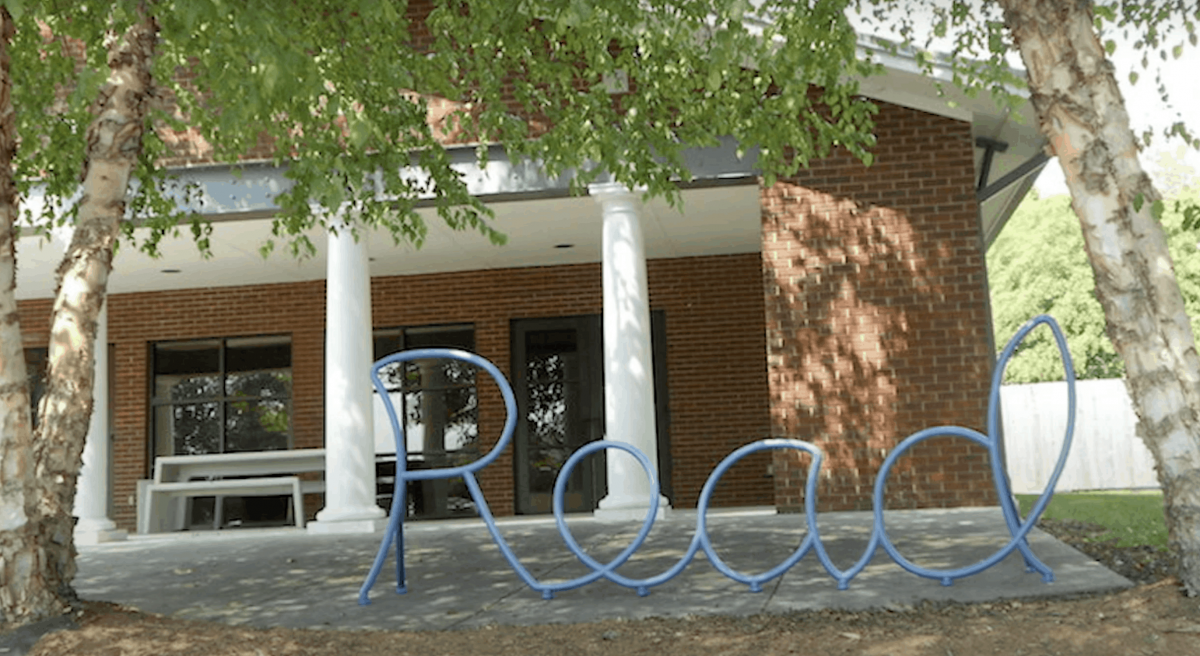On a quiet street, across a gravel driveway and up a dozen or so wooden stairs sits a red bag with the words GrubHub embroidered in white letters. Inside, a knotted plastic bag holds white styrofoam containers that are filled with chicken, vegetables, or fish, chickpeas.
Saba Ashfaq watches from inside her screen door as a woman wearing a surgical mask climbs her stairs and pulls the iftar from the GrubHub bag – the meal the woman’s family will eat after sundown to break their fast. Ashfaq smiles, sends a hello, never leaving her doorway more than six feet away.
“I must look like a dog that’s been waiting for their owner all day,” Ashfaq laughs, her two young children toddling in and out of the room as we speak over the phone. “Sometimes I just hang on to that door so excited to see friends and familiar faces. You could tell I almost forgot how to interact with people, with adults.”
Ashfaq’s is just one of several homes in Morgantown, West Virginia, that served as a meal drop-off and pick-up site for local Muslim families during Ramadan. In a normal year, this meal might be happening at the mosque just down the street with nearly 100 people on a regular weekday, 250 or 300 closer to the end of the month. This is anything but a normal year.
For 3.4 million Muslims in the U.S., the celebration of the holy month began on April 23 with the new crescent moon. In West Virginia, Gov. Jim Justice implemented stay-at-home orders more than a month before, in response to the coronavirus outbreak spreading across the country. The mosque in Morgantown, where Ashfaq’s husband is the imam, closed a few days before that announcement to prevent people from gathering in large numbers and potentially spreading the virus.
Across Appalachia – and around the world – women and their families are experiencing a different kind of Ramadan this year. Evening prayers, readings of the Quran, sometimes iftar or sehri, the pre-dawn meal, are usually celebrated in groups, at the mosque as a community or in the homes of friends and extended family. But this year, social distancing and self-quarantining mean that most are instead fasting, praying and celebrating the traditions of Ramadan at home, with only their nuclear families.
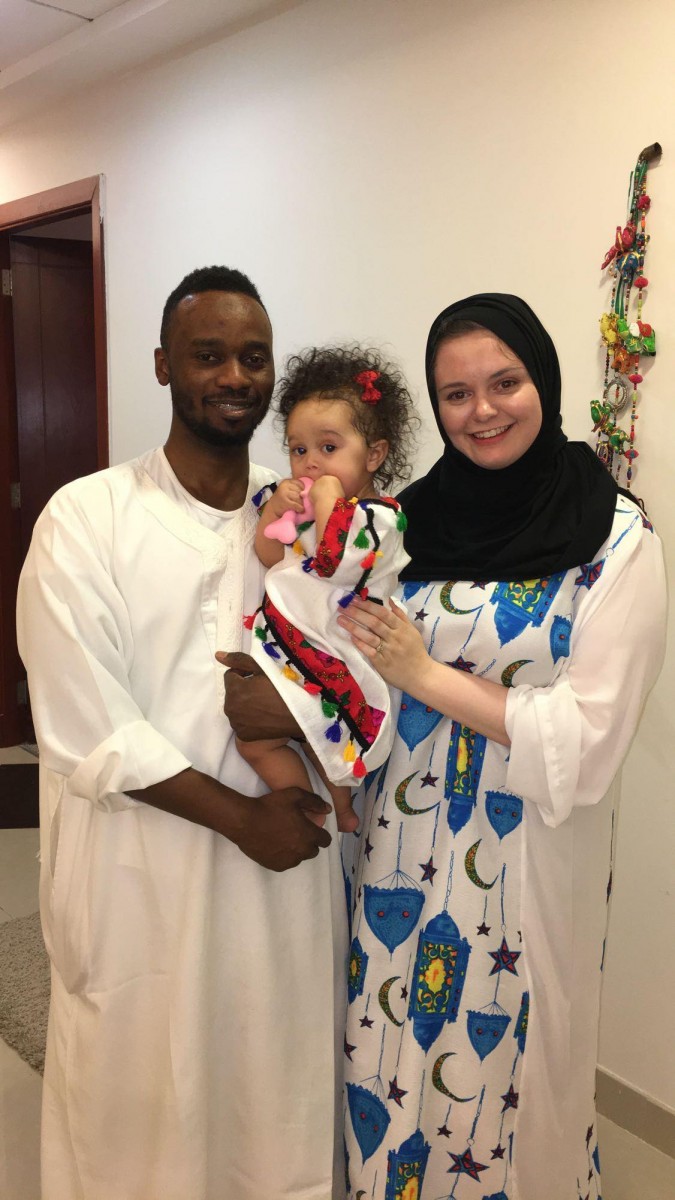
“It’s changed in a way that none of us could have ever imagined,” Ashfaq said. “In a way, it’s a struggle. But I also really believe that all of us are thriving in our own way too.”
Thriving isn’t exactly the way Kendra Souleymane described her Ramadan.
“This year is obviously a bit more lonely than previous years,” Souleymane said as she sat at her dining room table in Riyadh, Saudi Arabia.
She grew up outside Huntington, West Virginia, and went to Marshall University before getting a job teaching writing and oratory skills at a university in the largest city on the Arabian Peninsula.
This year, like many since she moved overseas in 2015, Souleymane was preparing to return to Huntington to celebrate Ramadan, with her toddler and the newborn she was bringing home to meet her family for the first time.
“Ramadan in Huntington is a really fun, community-based time. Every night, we have a community potluck,” Souleyman explained.
The university has attracted a diverse group of Muslims to the area and almost every night of the week Souleymane said iftar dinners are presented by a different nationality – Pakistanis, Libyans, Saudis cooking traditional ethnic foods.
But in early March, when her newborn daughter’s passport didn’t come, Souleymane had an inkling the trip might not happen. Soon after, the country closed its borders and began cancelling flights.
“Saudi was actually one of the last countries to have any cases of [this] coronavirus and then they got very strict,” she said. “But it worked out because they still have a pretty low number of cases and the recovery rate is incredibly high.”
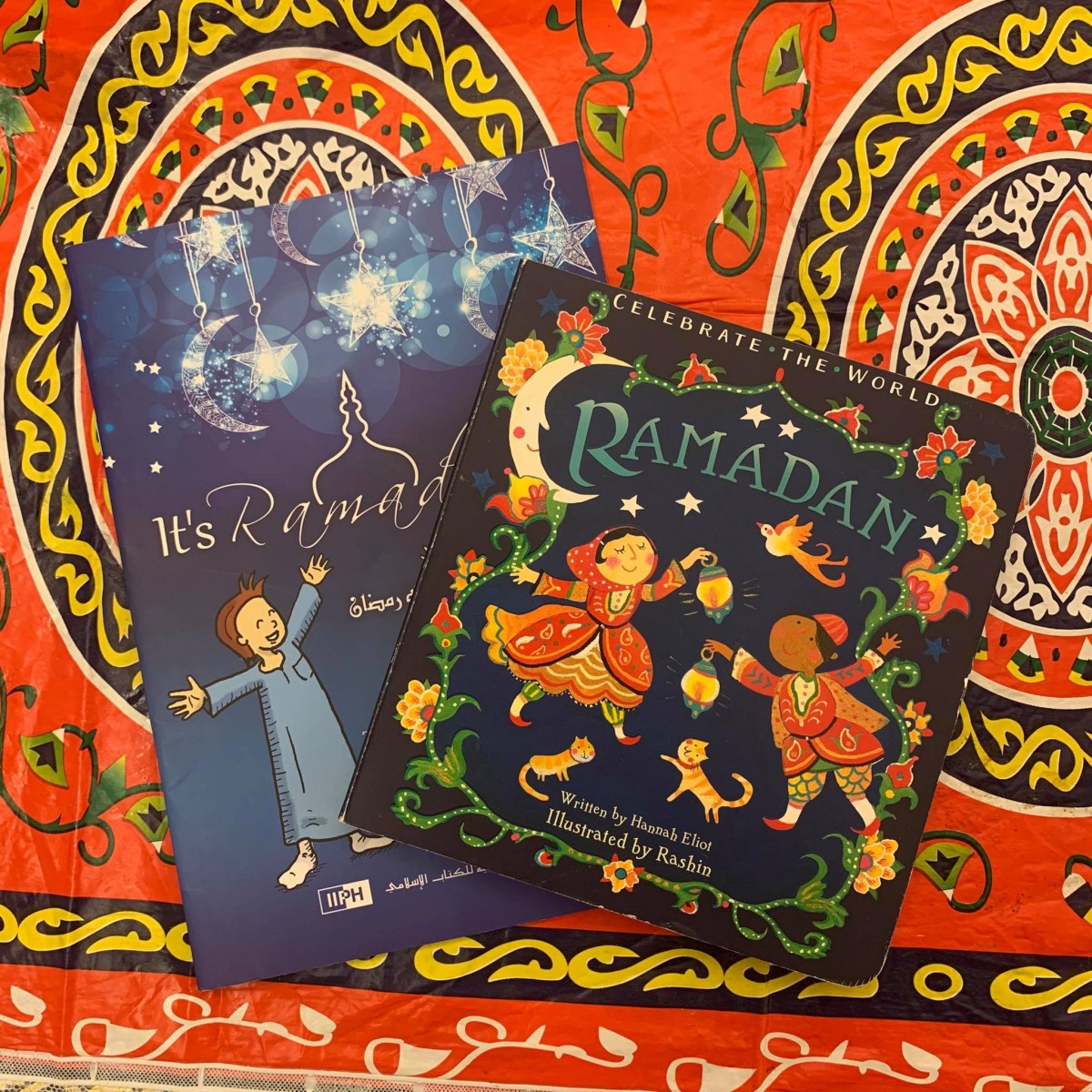
The country has experience with these types of viruses, Souleymane said, and in her home, they know how to mitigate the threat. Her husband is a resident in the university’s hospital and even though he isn’t working in a COVID unit, he leaves his shoes at the front door, immediately puts his scrubs in the washing machine and disinfects everything he carries with him – phone, keys, etc.
Ramadan has been mostly “praying, sleeping and eating” Souleymane said. Her two-year-old daughter doesn’t quite understand the meaning behind their now inverted schedule– napping between day time prayers as they fast, nighttime walks around the neighborhood, “fancy” meals, as Souleymane described them, in the evening and early in the morning before the sun rises.
“I think a lot of people think Ramadan is about not having food, but in reality, it’s the time everyone gets really intense with their food. It’s the time to let your skills shine,” she said. “If you’re only going to eat one big meal a day, it’s going to be a good meal.”
Tasha Rayyes agreed, Ramadan in majority Muslim countries is all about the impressive meals, the gourmet desserts, the treats and the chocolates.
She and her husband met in Abu Dhabi in the late ’90s when she was teaching in an international baccalaureate program, but she didn’t convert to Islam until just a few years ago.
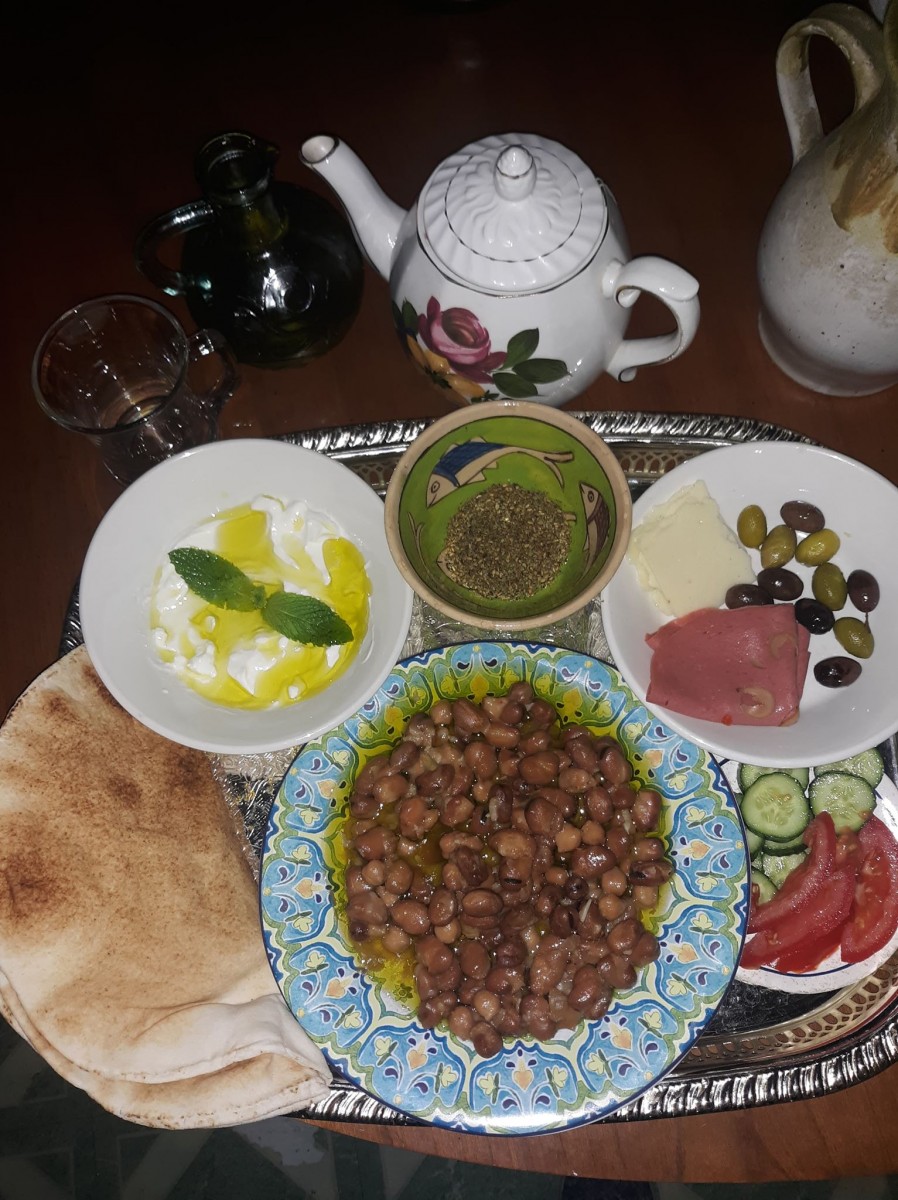
Reyyes said she’s always been more socially conservative than her husband – she says he’d go out dancing if she’d go with him, even though some Islamic scholars say it’s forbidden. That conservatism, she said, is probably rooted in her childhood in a dry county in western North Carolina, her extremely Christian family with a deacon grandfather who donated the land the church was built on. But the values were the same and the sense of community she felt in the Muslim community much stronger.
Now, Reyyes lives with her husband and three sons in Toledo, Ohio, where she says Ramadan is usually a much more exhausting time, especially for the person who takes on the responsibility of preparing the all-important iftar.
“There’s a lot of stress on the person preparing the meal to have everything ready right at the exact time,” she said, “and you don’t just cook what you usually would because people go hungry all day.”
You’ll get a break from the cooking when neighbors and fellow members of the faith invite you over to their house for the evening meal, she explained, but you’re expected to return the favor before the end of the holy month.
This year, Reyyes isn’t inviting friends over to break their fast, her husband and sons aren’t going to the mosque for readings of the Quran, and she said she hasn’t always succeeded in the goals she set for herself spiritually this Ramadan.
“I thought since we’re going to be home all the time, I’d just sit and read the Quran and do all of these things to grow myself,” she said, but COVID has taken a toll, at least to a degree, on her ability to focus on that spiritual growth. Like Souleymane, Reyyes said this Ramadan has also been lonely for her.
“The negative part is just having the absence of the feeling of community and people around,” Reyes said, but there are positives too. Her oldest son is graduating from high school this year and Ohio’s stay-at-home order has given them more time together.
“I feel like I’ve been given a gift,” she said. “He has a lot of things going on and we barely saw him, so I feel like God has gifted me this period of time to spend with him that I would not have had otherwise.”
In Morgantown, Saba Ashfaq is also enjoying the unexpected extra time with her immediate family. As the imam, Ramadan is usually a busy time for her husband, but instead of leading prayer at the mosque, he’s leading them at home, instead of leading religion classes for teens at the Islamic Center, he’s holding them on video conferencing software.
“It really does feel like a part of the mosque is here,” Ashfaq said. “It’s just given the kids the opportunity to learn about their religion and to connect with their dad.”
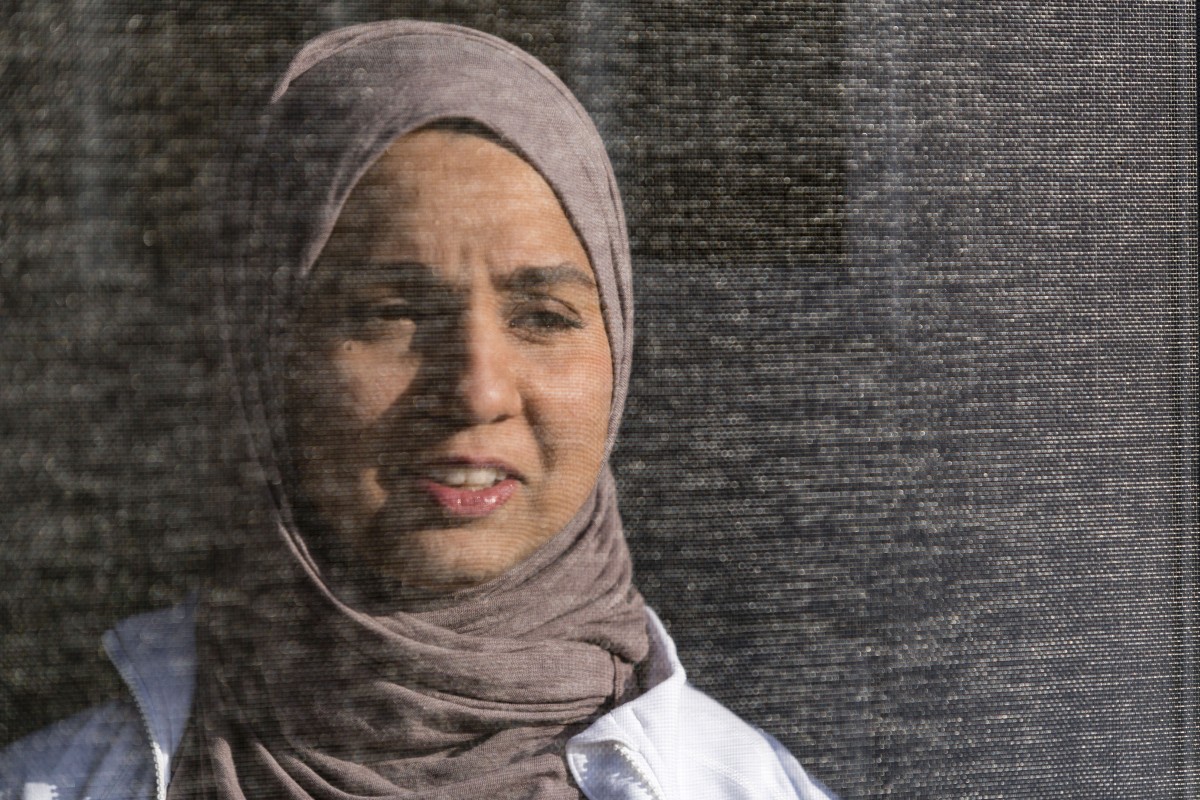
She misses the social interactions, Ashfaq admitted, seeing the people she doesn’t always get to see, who travel to town for Ramadan. But she’s trying to replace that with interactions on social media and WhatsApp, with friends in West Virginia, and other states and other countries, too.
“That typically wouldn’t happen during a usual Ramadan. You get those physical social interactions during the day or definitely during the night at the mosque,” Ashfaq said. “There’s just some more effort to reach out to the wider nationwide Muslim communities that you typically wouldn’t do because you’re so physically involved in your smaller networks.”
The celebration of Eid al-Fitr will also be different this year for these Appalachian women, connected by faith even though they’re spread across the world. Eid, or the festival of breaking the fast, marks the end of Ramadan and is also based on the cycle of the moon, so is expected to begin this weekend.
In places with large Muslim communities like Toledo, it’s celebrated with huge gatherings at convention centers with prayer, games and activities, and food. Children are given money and you can’t interfere with their purchasing decisions, Reyyes said.
“They’ll buy a toy that might make it two weeks before they break it,” she laughed, “but it’s their freedom to go buy whatever they want.”
But this year, Reyyes said she doesn’t know how her family will celebrate, the malls won’t be open, large gatherings aren’t safe. “Honestly, I have no clue,” she said, but they’ll find a way to celebrate it together.



